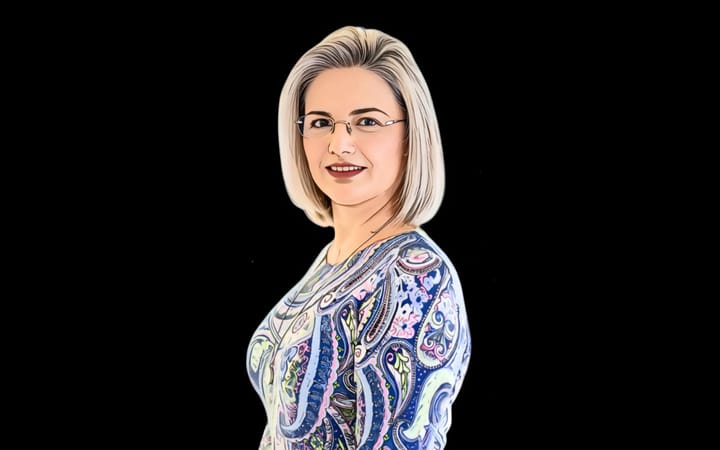Por Rita Alicia Rodríguez
Con medias luces y muchas sombras a cuestas despedimos otro año que, al menos, dejó una nueva historia por contar.
_____________________________________________________
El día que llegó una mujer para ocupar la Presidencia de nuestro país ocurrió este 2024, si de oportunidades de trabajo hablamos, esta tendría que ser la historia que nos permita abrir la puerta hacia otras historias que ya necesitamos contarnos.
En los entornos donde la realidad nos supera, seguimos escuchando relatos que bien podrían pertenecer a cualquier episodio noventero del género dramático televisivo. El INEGI en su comunicado de este año, a propósito del Día de la Madre, declaró que el 54% de las mujeres que no han trabajado o que dejaron su actividad laboral no buscan un empleo porque no cuentan con lugares seguros para que sus hijos sean cuidados, 11% piensa que su edad y su aspecto es una limitante y un 7% considera que para ellas no hay empleos o solo en ciertas temporadas del año.
Por su parte, en los pasillos del ámbito corporativo, donde las mujeres tienen un rol activo y donde incluso ocupan posiciones de alto nivel jerárquico el relato no es tan diferente. De acuerdo a la Ad Age en su reciente estudio sobre el panorama de la maternidad en LATAM, las mujeres en la industria publicitaria sienten que la maternidad les limita el cumplimiento de las demandas laborales y es un obstáculo para continuar en la competencia justa de sus roles.
En medio de estos y de múltiples desafíos en el entorno laboral, el Consejo de Empresas Globales, ha declarado que este es un buen momento para México ya que se han generado ecosistemas sólidos en diversas industrias, mejoras en las cadenas de suministro y que, sumado a su ubicación geográfica, es un buen lugar para invertir, más allá de la administración en curso.
Ante esto, el nearshoring (relocalización de las empresas en áreas más económicas) se catapultó como una oportunidad significativa para el crecimiento empresarial. Rompiendo paradigmas, México es uno de los países mejor evaluados en el dominio de aptitudes digitales mientras el área de los negocios tiene el mayor reto según el Índice Global de Habilidades. En contraste, nuestro país se ubica en la tercera peor posición entre 38 naciones al medir el panorama para los trabajadores altamente especializados debido a las condiciones laborales y el balance vida-trabajo, de acuerdo a los resultados del estudio hecho por la Organización para la Cooperación y el Desarrollo Económicos OCDE.
Estos datos nos proporcionan contextos para entender que si bien, el desempleo alcanzó el nivel más bajo registrado en el primer trimestre con una tasa de 2.4%, la realidad es que las oportunidades no se están dando para todos. La brecha de género latente reporta a través de INEGI un 76% de los hombres trabajando y tan sólo un 46% de las mujeres económicamente activas.
Sin empleo y pese a un marco de inseguridad y de incertidumbre, el emprendimiento fue una buena idea y como prueba de esto es que las micro, pequeñas y medianas empresas (MIPYMES) generan alrededor del 70% de los puestos de trabajo de acuerdo con el Plan Nacional de Desarrollo (PND). A su vez, la informalidad laboral reporta un 54% de la población que busca reducir los costos de formalización y que no han contado con incentivos ni capacitación para beneficiarse de un sistema financiero favorecedor.
A todo esto, sí el papel de las mujeres en la economía del país ha experimentado mayor relevancia en temas de inclusión y bienestar laboral, sin embargo, prevalecen áreas de oportunidad y problemáticas que parecen insisto, tomados de capítulos de programación televisiva antigua. Y para muestra, estos ejemplos que nos confirman la situación al término de este año (de acuerdo a la encuesta llevada a cabo por Kiik Consultores y el Instituto Mexicano para la Competitividad IMCO):
- La participación de mujeres con hijos alcanza 38% en puestos de mando medio y disminuye a 16% en los puestos de alta dirección.
- Los hombres perciben una mayor igualdad salarial en comparación con las mujeres.
Hace unos días en la retroalimentación de una publicación de una red social laboral, un colega me dijo: “entiendo tus cuestionamientos y pues sí, tus preocupaciones” y de inmediato refutó un punto del cual él no tenía fundamento. Me hizo recordar que si alguien no quiere o no puede ver en “las preocupaciones” de otros las oportunidades que pueden detonar cambios para bien de todos, difícilmente éstos se concretan.
Por otro lado, también es un hecho que empresas e instancias gubernamentales han hecho un trabajo exhaustivo para fomentar una cultura laboral inclusiva, pero esto requiere un compromiso mayor que no se ha logrado, considerando también nuestro rol consciente en sociedad.
¿Y qué nombre le pondremos a este año? Lo seguiré pensando…

Las opiniones expresadas son responsabilidad de sus autoras y son absolutamente independientes a la postura y línea editorial de Opinión 51.






Comments ()